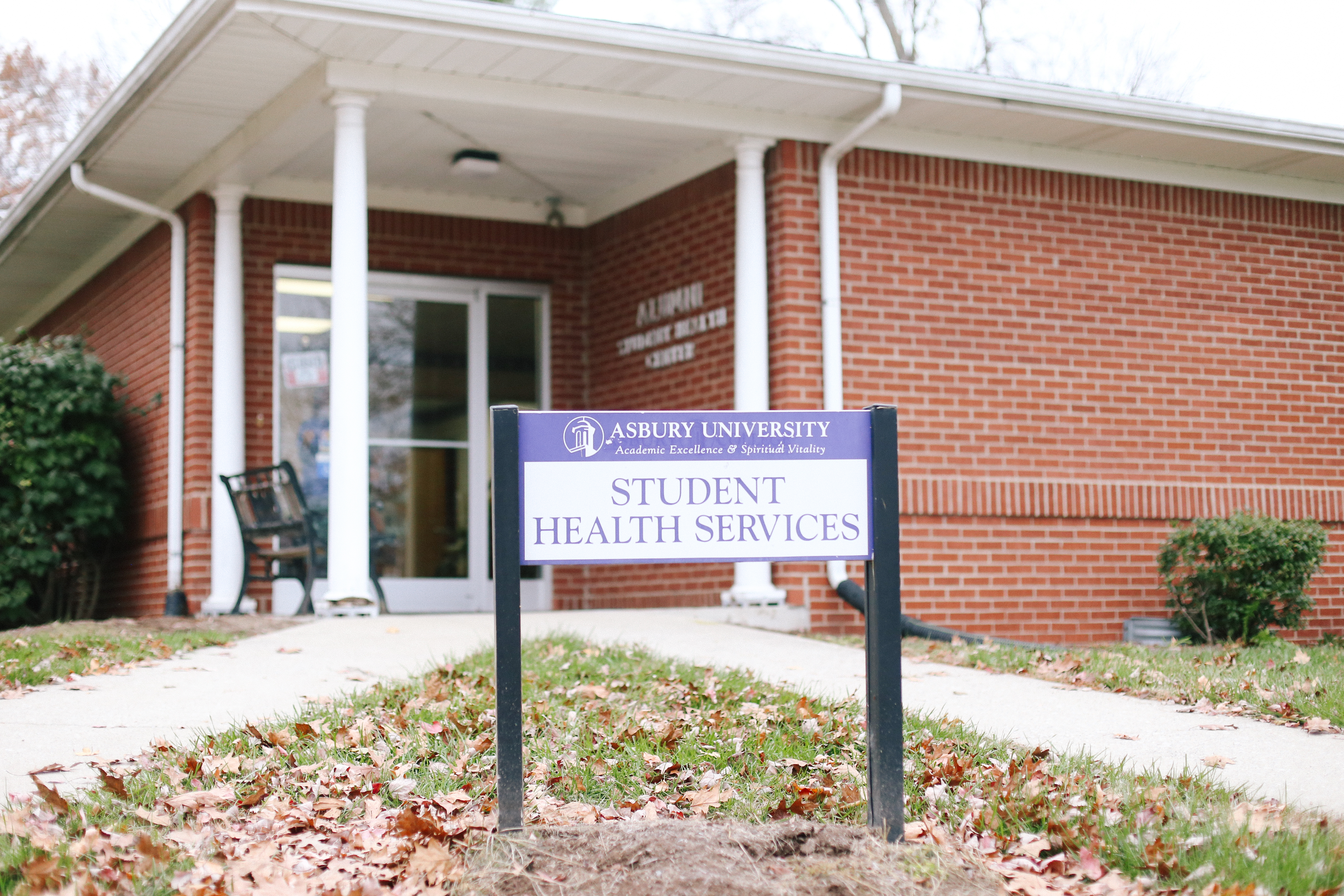By Robin Gericke, Staff Writer
Sore throats, coughs, upset stomachs and stuffy noses. Is it allergies? The cold? A flu? Carol Amey, a registered nurse at the Health Clinic, has begun to refer to the slew of cold-like symptoms on campus as simply the ‘Asbury crud.’” According to Amey, the amount of students catching the crud this year is fairly normal.
“We’re on target with the same amount of students coming into the clinic as last year,” said Amey. She says that when the doctor is in, the clinic may see 30 to 40 students each day. Other days, the average is closer to 20, but it all depends on what’s going around. The most common health issue on campus is upper respiratory problems.
“Colds, bronchitis, a few cases of pneumonia, mono and some strep, but primarily the typical virus cold,” said Amey. According to Amey, the clinic staff has tested a few students for mono and strep throat, but the most common illness face is merely a bad cold. Everything spreads faster on a college campus. The root of most campus sicknesses is simply a virus that can spread.
“Whether it’s a stomach virus or an upper respiratory infection (a cold), it just spreads. It’s the closeness of a community. It’s sort of like one giant daycare center where everybody is sharing everything,” said Amey.
Students can take simple steps to avoid illness. Amey recommends washing your hands frequently, using hand sanitizer and getting flu shots, whether or not they got them regularly before coming to college.
[column size=two_third position=first ]“I had one student who said, ‘I never get sick!’ and I told her ‘You’ve never lived with 300 other girls before,’” said Amey.
When students have a cold, the Health Clinic offers a diagnosis and medication.
“We can make you feel more comfortable while you have it, fight some of your symptoms and keep an eye on it so it doesn’t develop into anything stronger like a sinus infection,” said Amey. Other preventative steps students can take to stay healthy are getting enough sleep and making good eating choices.
“Lack of sleep can cause all kinds of things: terrible headaches, feeling stressed and anxiety. Just about every kind of illness or condition can be affected by lack of sleep,” said Amey. “You can’t do a couple of all-nighters in a week. It’s variable for different people, but I would say six to seven hours of sleep a night is a reasonable amount.”
A healthy diet includes fresh fruits and vegetables, proteins and some carbs. Dawn Rightmire, another registered nurse at the Clinic, offers one-on-one sessions about nutrition for interested students.[/column]
[column size=one_third position=last ]
Lack of sleep can cause all kinds of things: terrible headaches, feeling stressed and anxiety.
[/column]
In everything, Amey stresses the importance of balance and moderation, including spiritually. “Sometimes students are so overwhelmed with everything else they’re doing there’s no time for the Lord,” she said. “I truly believe that balance with the Lord and working on that relationship with him holds things together.”
The Health Clinic is open Monday to Friday, 9 a.m. to 4 p.m. The doctor’s hours are Monday and Thursday from 9 a.m. to 2 p.m. Walk-ins are welcome, but appointments are encouraged, especially to see the doctor. Students should be intentional about going to the Health Clinic when they start feeling ill.
“If you’re sick enough to miss class or an exam, you better show up at the Health Clinic or the professor’s not going to be understanding,” said Amey. “I would hope students would come sooner rather than later. Our job here is to help students do their job. If there’s something physical or emotional standing in their way, we want to be there to help them.”




